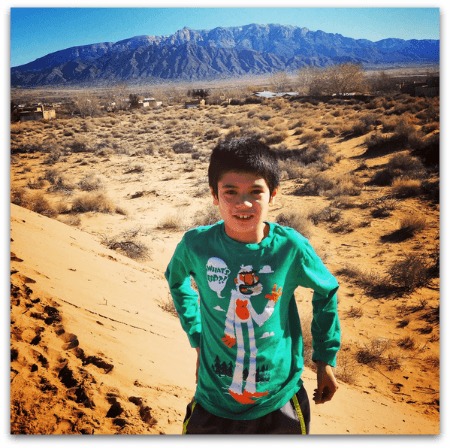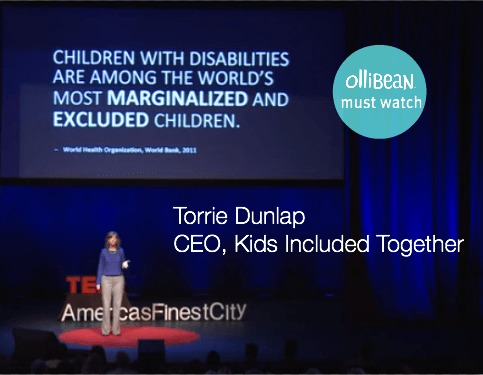The Institute on Disability’s National Center on Inclusive Education (NCIE) Summer Institute builds upon 15 years of experience presenting high quality, evidence-based conferences that serve professionals, families, and self-advocates by providing the latest information and practical strategies in the areas of inclusive education, post-secondary transition, and autism. The 2013 conference, When Behavior Gets in the Way: Creating Caring Schools and Communities, will provide learning experiences for families, educators, community services providers, community mental health professionals, and self-advocates who are working to promote inclusive education and transition experiences for students who have challenging behaviors.
This year, we have organized the conference into five strands over three days:
Every Student College and Career Ready: Positive Behavioral Interventions and Supports in Schools
The Communication & Behavior Relationship: Focus on Augmentative Communication and Students Taking the Alternate Assessment
Inclusive Classroom Strategies that Promote Positive Relationships, Behavior, and Learning
Youth Leadership
Contemporary Topics
Conference participants may attend sessions in one strand or may mix and match sessions from the five strands according to their interests to create a custom learning experience.
Who Should Attend
The NCIE Summer Institute is designed for and will benefit individuals with disabilities and/or challenging behaviors, parents, educators, paraeducators, school administrators, guidance counselors, related services providers, psychologists, university students, educational teams including families, and others interested in creating more inclusive opportunities for students with disabilities.
Professional Development
All participants will receive a Certificate of Participation. The NCIE Summer Institute qualifies for 24 Staff Development Hours.
A Note on Language
The NCIE Summer Institute respects both people-first and identity-first language related to autism and other disabilities. People-first language seeks to eliminate dehumanization of people with disabilities. It helps those who don’t live with a disability recognize people with disabilities as individuals with personalities and identities that are not defined by their disability. Saying “student with autism,” for example, acknowledges that autism is an important, but not the only, part of a student’s identity. The international autistic self-advocacy community strongly prefers the use of identity-first language (e.g., autistic people) over people-first language to describe autistic individuals. This preference reflects acknowledgement of autism as an integral facet of neurologically diverse personhood for people who experience it and the importance and pride of one’s ability to identify with a shared autistic culture.
Location:
Radisson Hotel
700 Elm Street
Manchester, NH 03101
Registration Fees:
Professionals: $399
Students / Parents / Self-Advocates: $329
Groups of 3 or more: $329 ea.
Single Day: $159
Contact
Name: Cat Jones
Email: events.iod@unh.edu
Phone: 603.228.2084
Website: radisson.com/manchester
Keynotes
Keynote Presenter: Lydia Brown
“Reconstructing Special Education within a Neurodiversity Framework”
Date: Monday, July 29 | Time: 8:45am-9:45am
Lydia Brown is an autistic and multiply-disabled disability rights activist, scholar, and writer. She works on disability policy as a project assistant for the Autistic Self Advocacy Network, and is also participating in the American Association of People with Disabilities internship program this summer. Lydia currently serves as Undersecretary for Disability Affairs at Georgetown University’s student government executive branch, where she is also working to establish, develop, and sustain a Disability Cultural Center on campus. She is a member of the Board of Directors of TASH New England, the National Council on Independent Living Youth Caucus, and the Georgetown University Center for Excellence in Developmental Disabilities Consumer Advisory Council. Lydia was the 2012 Patricia Morrissey Disability Policy Fellow at the Institute for Educational Leadership, and previously interned with the Autistic Self Advocacy Network, where she also attended the inaugural Autism Campus Inclusion summer leadership academy. In 2011, she served on the adult services subcommittee of the Massachusetts Special Commission Relative to Autism, where she provided recommendations on autism and criminal justice related to legislation she has written. Lydia blogs at Autistic Hoya.
Keynote Presenter: George Sugai
“Multi-Tiered Support Systems: Effective and Efficient Strategies to Prevent Challenging Behaviors”
Date: Tuesday, July 30 | Time: 8:45am-9:45am
George Sugai (“Su-guy”) is Professor and Carole J. Neag (“Nee-ag”) Endowed Chair in the Neag School of Education at the University of Connecticut. His professional interests include effective classroom and behavior management practices, school-wide discipline, social skills instruction, and positive behavior supports. He has been a classroom teacher, program director, and camp counselor. Currently, he is co-director of the OSEP Center on Positive Behavioral Interventions and Supports and director of the UConn Center on Behavioral Education and Research.
Keynote Presenter: Dan Habib
“Film Premiere on Restraint and Seclusion”
Date: Tuesday, July 30 | Time: 2:45pm-4:00pm
Dan Habib is Filmmaker in Residence at the UNH Institute on Disability. His latest film Who Cares About Kelsey? has been screened at film festivals, national conferences, and school districts around the country and has garnered media attention in Education Week magazine and on New Hampshire Chronicle and Boston public radio station WBUR. Who Cares About Kelsey? is Habib’s second feature-length film; his previous work includes the Emmy-nominated documentary Including Samuel, which was broadcast nationwide on public television stations in fall 2009.
Keynote Presenter: JoAnne Malloy
“We Are Here: Stories of Youth in Transition to Adulthood”
Date: July 31 | Time: 8:45am-9:45am
JoAnne Malloy is a clinical assistant professor at the UNH Institute on Disability. She has over 30 years’ experience in community-based employment and transition practice, research, evaluation, and management. She has also directed four nationally-funded projects in youth transition, employment of individuals with serious mental illness, and dropout prevention (with a focus on youth and young adults with serious emotional disturbance). JoAnne was part of the team that developed the RENEW (Rehabilitation for Empowerment, Natural Supports, Education, and Work) model in 1996 and has since developed and directed projects that have continued to refine and expand implementation and evaluation of the RENEW model. She is the author of over 15 journal articles and co-author of four book chapters focused on transition and youth with serious emotional disturbance and consumer choice and control models.
Conference participants may attend sessions in one strand or may mix and match sessions from the five strands according to their interests to create a custom learning experience. See below for an overview of each strand.
Strand A – Every Student College and Career Ready: Positive Behavioral Interventions and Supports in Schools
Sessions presented by JoAnne Malloy and select accompanying presenters.
The implementation of Positive Behavioral Interventions and Supports (PBIS) in middle and high schools is growing nationally. New Hampshire, in collaboration with the Institute on Disability, has been a leader in implementing PBIS in high schools since 2002 through various dropout prevention and community mental health projects. This strand will highlight practical, real-life examples of PBIS implementation at the Universal, Targeted, and Tertiary levels with presentations by schools and youth throughout New Hampshire. Participants will learn how PBIS looks “on the ground,” how schools deal with challenges, and how teams use data, implement evidence-supported practices, and build buy-in throughout their schools.
A1: Intensive Session: Universal High School PBIS Implementation with Student Leaders
A2: Voices of Youth
A3: An Interconnected Systems Framework
A4: Intensive Session: Converting Secondary Level Study Classes into Tier 2 PBIS Interventions
A5: Tier 2 PBIS: Check In/Check Out at the Secondary Level
A6: Intensive Session: RENEW at the Tier 3 PBIS Intervention in Middle and High School
A7: Universal PBIS Rollouts at the Secondary Level
Strand B – The Communication & Behavior Relationship: Focus on Augmentative Communication and Students Taking the Alternate Assessment
Sessions presented by Michael McSheehan.
Students with limited communication (or those described as non-verbal) have a lot to say, but these students may exhibit challenging behaviors when they don’t feel heard or understood. These sessions will provide participants with increased understanding of the communication-behavior relationship, tools for creating useful communication supports that decrease the need for challenging behaviors, and strategies for integrating augmentative communication in general education settings.
B1: Intensive Session: Recognizing and Assessing Your Student’s Communication Needs
B2: Functional Communication Training to Address Challenging Behavior
B3: Is It the Right Device? Feature Matching and Considerations for Selecting Communication Technology
B4: Intensive Session: “But What About Students with THE MOST Complex Communication Needs?” Recommended Practices for Non-Symbolic or Non-Intentional Communicators
B5: Recommended Practices for Emerging Symbolic and Beginning Communicators
B6: Intensive Session: AAC & Inclusive Education: Membership, Participation, and Learning
B7: Expanding AAC Across the School Day
Strand C – Inclusive Classroom Strategies that Promote Positive Relationships, Behavior, and Learning
Sessions presented by Cheryl Jorgensen unless otherwise noted.
When you walk into a classroom where all the students are engaged in joyful learning, and where they respect one another and their teachers, what do you notice? All students feel a strong sense of belonging. The teacher uses instructional strategies that accommodate each and every student’s learning style. All children strive to do their best and are invested in the achievement of all their classmates. Stress and anxiety levels are low yet it’s sometimes noisy because everyone is having fun! This strand will teach practical strategies for creating inclusive classrooms through active learning among the session participants. It will focus on students with labels of autism, and intellectual and other developmental disabilities.
C1: Intensive Session: Universal Design for Learning (UDL)
C2: Using UDL Principles to Design Instruction that Meets All Students’ Needs
C3: Technology that Supports All Students’ Access to Information and Demonstration of Learning
C4: Intensive Session: “Just Give Him the Whale!” Honoring All Students’ Interests and Passions by Creating a Welcoming Classroom Culture
C5: Cooperative Learning that Promotes Inclusion and Kind Behavior
C6: Intensive Session: Differentiating Instruction, Assessment, and Environment – presented by Susan Shapiro
C7: Changing Roles for General and Special Educators to Support Inclusive Education
Strand D – Youth Leadership
Sessions presented by Heidi Cloutier unless otherwise noted.
Youth ages 14-20 are invited to meet peers from other communities and engage in fun, experiential activities designed to build relationships and connections and stretch your comfort zone! Together we will learn about individualized, group, and policy-level leadership activities, reflect on and develop student centered personalized career and learning plans, and develop ideas for creating and sustaining caring schools and communities. We will focus on strategies for transferring the experience back to our day-to-day world. Finally, let your creativity shine as you work with your peers to create, produce, and perform a presentation that will be included in the closing plenary session on the final day of the conference.
D1: Intensive Session: Getting to Know Me
D2: Dream Big, Start Today!
D3: Culture Shock
D4: Intensive Session: Can You Hear Me Now?
D5: Self Advocacy in Action – presented by Lydia Brown
D6: Intensive Session: Youth Leadership in Action (Part 1 of 2)
D7: Youth Leadership in Action (Part 2 of 2)
Strand E – Contemporary Topics
This strand will provide participants with opportunities to learn about a variety of cutting-edge issues in the field of inclusive education.
E1: Intensive Session: Evidence-Based Mental Health Treatments for Children Who Have Experienced Trauma – presented by Erin Barnett
E2: Going From Yes to No Being the First Student to be Included presented by Henry Frost
E3: No Session
E4: Intensive Session: Going Deeper – Q &A on Keynote Topics – presented by George Sugai
E5: The Post-School Outcomes of Family-Centered Transition Planning – presented by David Hagner and Heidi Cloutier
E6: Intensive Session: Apps for Self-Regulation and Emotional Well Being – presented by Therese Willkomm
E7: Friendship as a Condition of “Classroom Management” – presented by Susan Shapiro






Leave A Comment